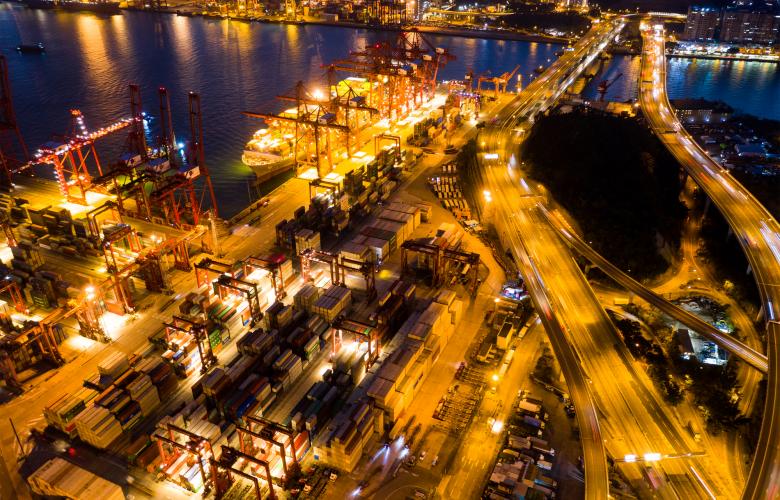A re-allocation of investment strategies towards industrial and logistics means competition for completed assets within the sector will "remain fierce" across the globe, according to Savills.
The firm reports the asset class has accounted for a record 20 per cent of the total investment volume into real estate in the first half of this year.
Savills World Research Director Paul Tostevin said volumes of investment into the global logistics sector overtook transactional activity into the retail sector for the first time last year, with industrial yields now on a par with the retail and office sectors.
At a glance:
- Investment into the industrial and logistics sector accounted for a record 20 per cent of all global investment volumes into real estate in H1 2020.
- Some $196 billion was invested in the sector in 2019, a sixfold increase since 2009.
- Industrial investment volumes overtook retail for the first time last year, making it the third most invested asset class, after offices and residential.
“The current global e-commerce boom, accelerated by consumers shifting their purchasing online throughout the pandemic, has been a major catalyst for this sector’s growth,” he said.
Forecasts from the Centre of Retail Research predict that online sales will grow by 31 per cent in Western Europe in 2020.
This will push the average e-commerce penetration rate from 12 per cent to 16 per cent.
In the US, the same figure is expected to reach 14.5 per cent, an all-time high, according to eMarketer.
But both markets have some way to go until they reach China’s e-commerce penetration levels, which stand at 27 per cent.
Mr Tostevin said this illustrated the growth potential to come.
“Ecommerce isn’t necessarily the sole factor boosting demand,” he said.
“Recent supply chain disruption, coupled with escalating trade wars is leading to supply chain diversification, boosting demand for industrial and logistics space in strategic locations closer to the major consumer markets.”
As investor competition for logistics and industrial assets intensifies, Savills notes that prices have risen and yields have compressed.
Data from the firm indicates that, between 2007 and 2017, global industrial yields averaged 7.5 per cent, 70 basis points (bps) above average office yields.
Yet, in the second quarter of 2020 industrial yields had moved in to 6.1 per cent, just 10 bps above global office yields.
Kevin Mofid, Director of Savills Industrial and Logistic Research said as the sector matured, there had been a shift in investor composition towards institutional capital and portfolio deals have accounted for a larger slice of the market, attracting price premiums.
"Former developer traders now see the income opportunity and have become developer holders," he said.
"The major funds and REITS are attracted to the sector’s long term income streams and there’s a growing scarcity value as stock is being held for longer.”
Savills observes that the market in China remains extremely resilient, logistics volumes in the first half of 2020 stood at for 80 per cent of 2019’s total.
India, meanwhile, is emerging as an alternative manufacturing destination to China, helped by low labour costs, trade openness and a business-friendly government.
Marcus de Minckwitz, Director, Savills Regional Investment Advisory, EMEA, said the growth of the logistics sector is a truly global story and it is now proving to be one of the most resilient asset classes through this global economic downturn.
“There are unprecedented levels of investor demand and in the West, this has been driven by Amazon and major national players," he said.
"We may now see a whole new wave of demand from the big Asian players heading West.
"The ongoing challenge for investors will be finding opportunities."
Similar to this:
Singapore industrial rents face pandemic pressure - Savills report
Asia Pacific commercial sentiment improving despite drop in investment volume - CBRE
Savills Singapore announces new property management appointment









